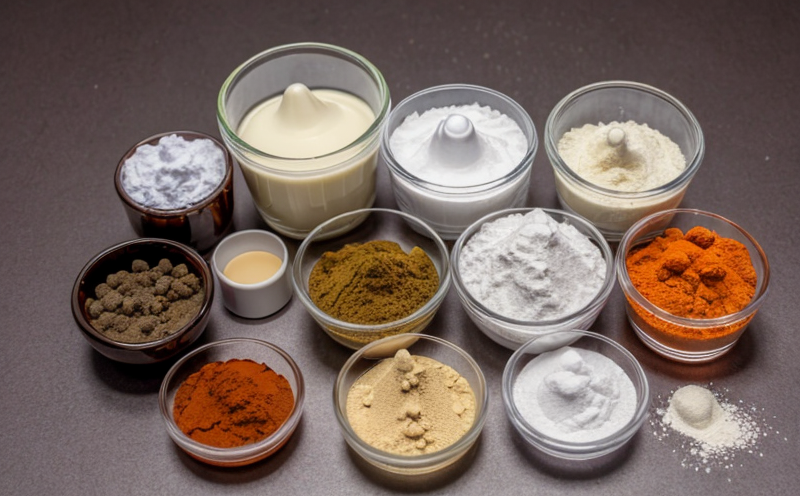Carr Index Compressibility Testing
The Carr Index is a crucial metric used in pharmaceutical testing to measure the compressibility of excipients and formulation ingredients. This test evaluates how easily materials can be compressed into tablets or other dosage forms, which is vital for ensuring product quality during manufacturing processes.
This service applies to a wide range of excipients including lactose monohydrate, microcrystalline cellulose, and pregelatinized starch, among others. The test helps manufacturers understand how these materials will behave in different formulations, thereby optimizing production efficiency and minimizing waste.
The Carr Index is determined by compressing a sample using specific pressures (typically 300, 500, and 750 kg/cm²) with a tablet press machine. The percentage reduction in volume at each pressure point is recorded, which forms the basis for calculating the Carr Index.
The process involves precise specimen preparation to ensure accurate results. Samples are typically taken from batches of excipients or formulation ingredients that will be used in production. These samples undergo thorough drying and sieving before being compressed into tablets under controlled conditions.
Compliance with international standards such as ISO 13549 is essential when performing this test, ensuring that the results are reliable and can be compared across different laboratories worldwide. Understanding these standards helps in setting up appropriate testing protocols and interpreting the outcomes correctly.
The significance of Carr Index Compressibility Testing extends beyond just meeting regulatory requirements; it also plays a key role in ensuring product consistency and quality control during manufacturing processes. By identifying potential issues early on, companies can make necessary adjustments to formulations before they reach large-scale production stages.
For instance, higher compressibility values indicate that the excipient may be more prone to deformation under pressure, leading to potential problems like capping or lamination in final products. Conversely, lower compressibility might suggest difficulties in achieving uniform compression across all tablets within a batch.
In summary, Carr Index Compressibility Testing is an indispensable tool for pharmaceutical manufacturers who seek excellence in their production processes. It allows them to fine-tune formulations based on empirical data derived directly from the materials themselves, ultimately contributing to better patient outcomes by ensuring consistent and high-quality medications.
Benefits
- Ensures product consistency: By measuring compressibility accurately, manufacturers can maintain uniformity in tablet shape and size throughout production runs.
- Promotes efficiency in manufacturing: Understanding the compressibility properties early allows for adjustments to be made without affecting downstream operations significantly.
- Aids regulatory compliance: Adherence to international standards like ISO ensures that test results are acceptable across various jurisdictions, facilitating smoother market entry processes internationally.
The ability to predict how materials will perform under pressure is invaluable for optimizing production lines. It enables companies to reduce waste by minimizing rejections during compression stages, thus saving costs associated with scrap or remanufacturing.
Moreover, this testing method contributes significantly towards maintaining regulatory standards set forth by bodies such as the FDA and EMA, thereby fostering trust among consumers regarding the safety and efficacy of pharmaceutical products.
Environmental and Sustainability Contributions
- Reduces waste: Accurate compressibility testing helps manufacturers identify optimal formulation parameters, reducing unnecessary material usage during production processes.
- Promotes efficient use of resources: Understanding the behavior of excipients allows for more precise dosing, minimizing overuse or underutilization of raw materials.
The environmental impact associated with pharmaceutical manufacturing can be substantial. By implementing Carr Index Compressibility Testing effectively, companies contribute positively to sustainability goals by optimizing resource consumption and reducing waste generation.
Additionally, this testing method supports sustainable practices within the industry by encouraging innovation in formulation design that balances performance requirements with ecological considerations. Manufacturers who adopt such approaches not only enhance their competitive edge but also align themselves with global trends towards greener business practices.
Competitive Advantage and Market Impact
In an increasingly competitive market, being able to consistently produce high-quality pharmaceutical products is critical. Carr Index Compressibility Testing provides a reliable means of achieving this consistency, giving companies a significant advantage over competitors who may not possess similar capabilities.
Companies that invest in thorough quality control measures like this testing method tend to experience improved customer satisfaction due to more consistent product performance. This can translate into increased sales and stronger brand loyalty among consumers.
The ability to demonstrate compliance with international standards also enhances a company's reputation, making it easier for them to secure contracts from major players in the pharmaceutical industry. Such recognition fosters long-term relationships that contribute to sustained growth within the market.





